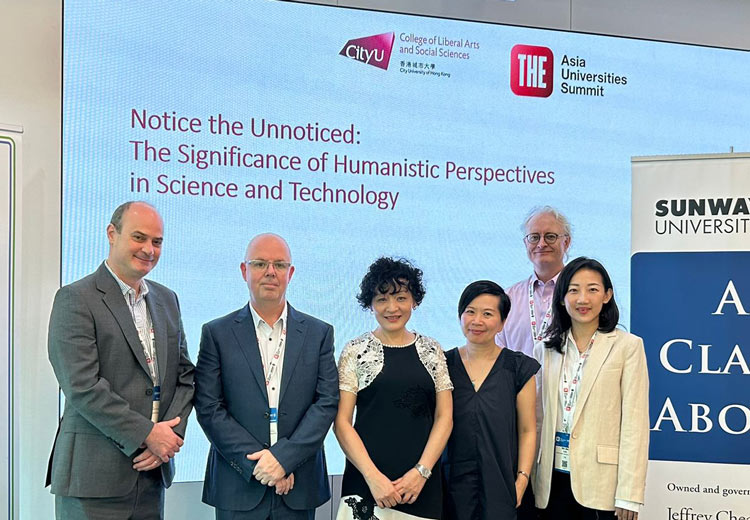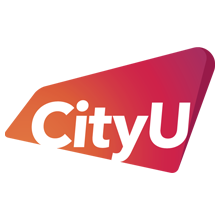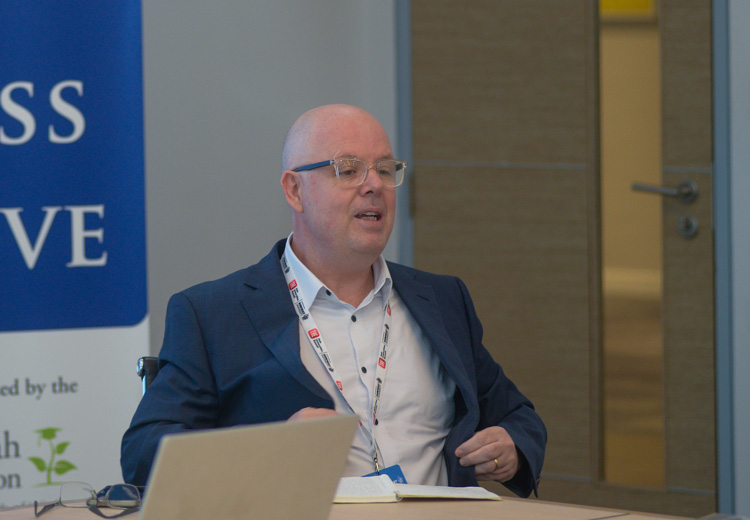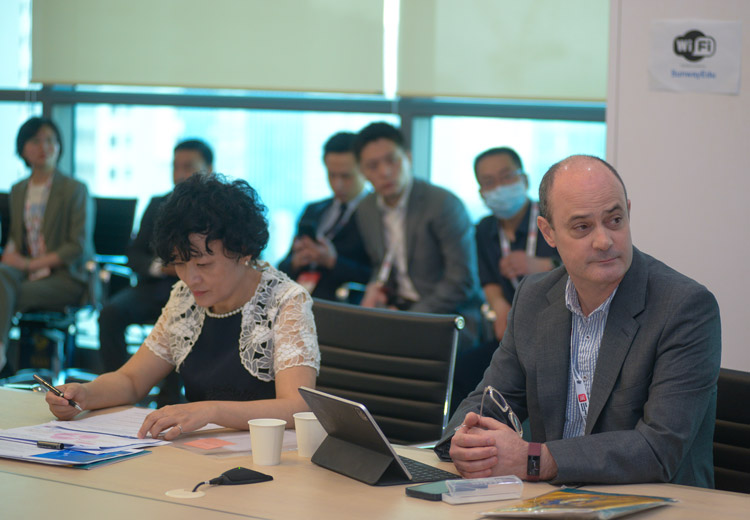Prioritising human values in the digital era

Sponsored by

Sponsored by

Humanistic perspectives are vital for understanding the impact of cutting-edge technologies, helping society promote digital literacy and combat misinformation
While technology can be a force for good, there are fundamental issues surrounding how it can best serve humanity, and confronting these issues requires a humanistic perspective. At a round table during the 2024 THE Asia Universities Summit, held in partnership with the City University of Hong Kong (CityUHK), social science experts from CityUHK – introduced by Matthew Manning, the head of the Department of Social and Behavioural Sciences at the university – examined how the impact of digital technologies could be maximised through humanistic values.
“We believe that understanding human complexity is central to preparing our students to tackle the needs of what is a quickly changing society,” said Manning. “What we try to do is cultivate higher-order thinking [in students].” Humanistic perspectives in science and technology encourage critical examination of the social impacts of technological advancements, he added.
“Humanists argue that scientific and technological progress should be accompanied by efforts to reduce society’s problems,” Manning explained. “Science and technology should be guided by humanistic values such as compassion, empathy and the pursuit of knowledge for the betterment of society.”

Manning said that science and technology innovators should consider the broader values and meanings associated with their work. “Decisions about scientific research and technological innovation and policy should involve diverse perspectives and be guided by ethical principles and societal values,” he said. This approach will help to prevent misuse and unintended consequences of technology.
The panellists from CityUHK discussed the values and perspectives that they try to embed in their students’ learning experiences. Christoph Hafner, who is an applied linguist and associate professor in CityUHK’s Department of English, explored how principles of applied linguistics provide humanistic perspectives on communication technology and digital literacy studies.
“Because of generative AI, we are now seeing first-hand how quickly things like reading, writing and communication practices can change,” Hafner said. “In an age when productive participation in society depends on the ability to access and effectively use various forms of digital technology, it’s crucial that people learn about those new forms of reading, writing and communicating.”
Research on digital literacy shows that it is important to understand not only what technology can do but also its cultures of use. While communications technologies are ostensibly social platforms, researchers need to meet the opaque requirements of online algorithms to be able to reach their target audience. “Professional communicators need to understand these to be successful in their communication,” said Hafner.

Digital communication is, however, a two-way street. Yi-Hui Christine Huang, head and chair professor of communication and media at CityUHK, made the case for promoting digital literacy among all generations. Huang’s research explores how misinformation spreads in today’s media ecosystem. According to Huang, 50 per cent of individuals who participated in her research survey reported being exposed to misinformation, with 17 per cent admitting to disseminating misinformation.
Strategies for combatting misinformation are inherently linked to humanistic perspectives on digital technology. “At the first level is the individual,” Huang said. “Media literacy and digital literacy are very important. We need to educate individuals to combat misinformation.” The next level is the technology itself. AI-powered content analysis helps identify and archive misinformation, contributing to a database that can be used for fact-checking. The third is societal, Huang argues, adding that there is no better vaccine for misinformation than a well-informed, digitally literate populace. “Free access or equal access to information would help combat misinformation at a societal level.”
Manning also shared results from the ongoing research conducted by crime science scholars at the university. He said that CityUHK’s focus is on providing solutions, such as technological solutions for online crimes, encryption techniques and authentication mechanisms, to prevent future crimes. Researchers at CityUHK collaborate with technology and industry providers, law enforcement and policy experts to implement these solutions.
The College of Liberal Arts and Social Sciences at CityUHK fosters interdisciplinary research to address societal challenges and facilitates comprehensive personal development in students through a well-rounded academic experience. It offers courses in a wide range of subjects such as English, linguistics and translation, Chinese and history, and media and communication.
Find out more about the College of Liberal Arts and Social Sciences at the City University of Hong Kong.